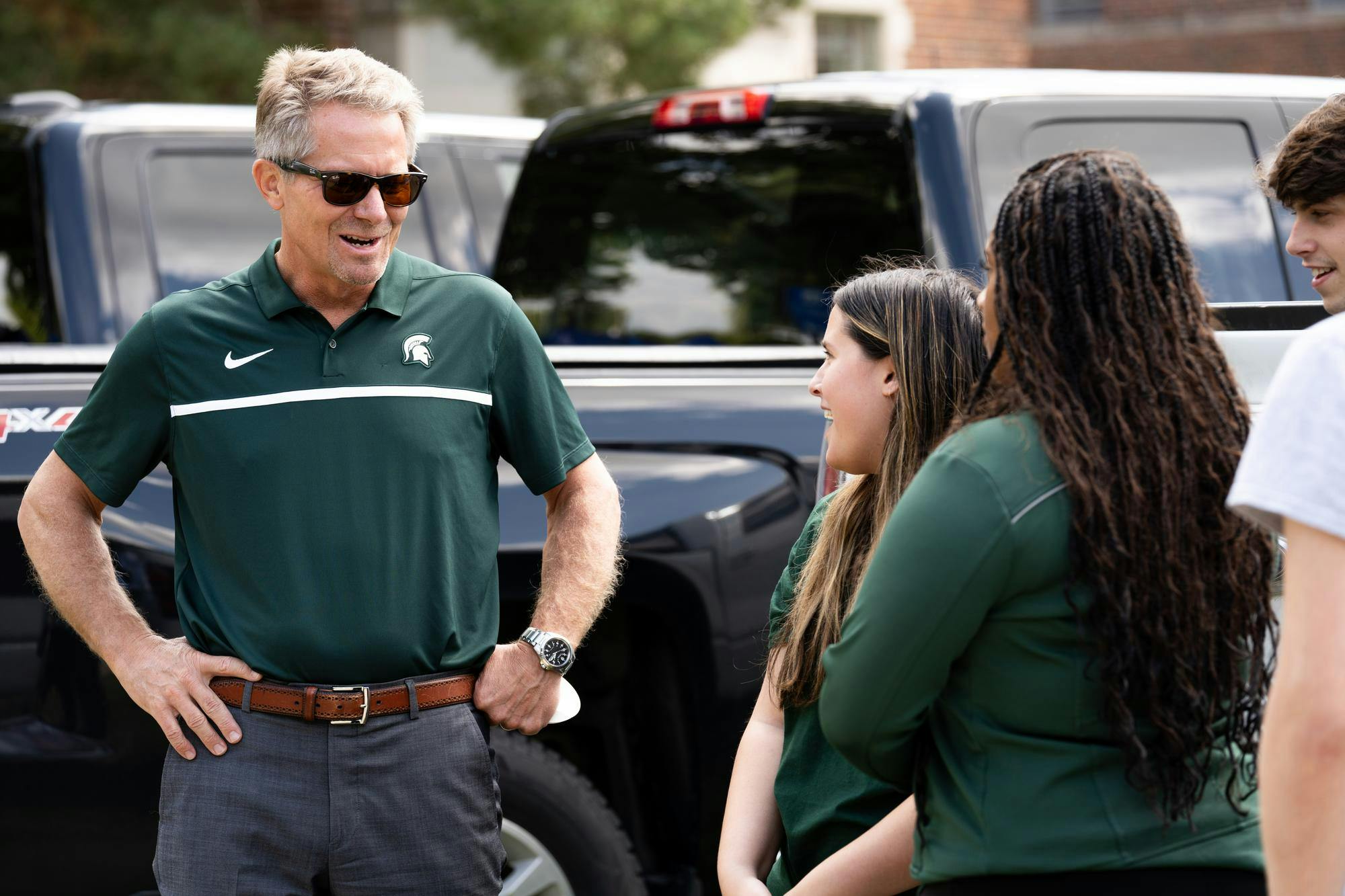With an approaching election and increasingly intense campus debate about the Israel-Hamas war, Michigan State University president Kevin Guskiewicz thinks “it’s going to be an interesting Fall semester.”
Guskiewicz, who began work in March, is settling in during a tense moment for campus conversation. To him, MSU will be sheltered from the turmoil that has rocked other universities. In an interview with The State News, he said other leaders mistakenly “retreated” in contentious moments, while he is committed to engaging with critics and promoting “empathy” in disagreement.
“We can have these debates, and it doesn't have to result in hateful rhetoric,” Guskiewicz said.
Whether it be in protesting him or in discussions amongst students, Guskiewicz said he hopes people approach charged disagreements with “empathy and intellectual humility.”
In his August community email, which was focused on civil discourse, Guskiewicz said disagreements should include “listening actively, responding thoughtfully and debating respectfully.” He said he’s asked faculty to model that behavior in the classroom, so students know the university “values viewpoint diversity.”
“That’s what a thriving democracy should be about, and unfortunately we don’t see enough of it,” he said.
Another model he cited is MSU’s Conversations on Antisemitism and Islamophobia, a series of panel discussions led jointly by the Muslim Studies and Jewish Studies programs. The events, which ran last fall, will be coming back this year, a spokesperson said.
Guskiewicz said he has also tried to demonstrate “intellectual humility” in his dealings with student protesters concerned about the war in Gaza.
Navigating that discourse has proved perilous for other presidents, with congressional questions about the limits of speech marking the beginning of the end for some and disputes over protest suppression prompting votes of no confidence in others. But, Guskiewicz said he believes that continuing to engage directly with activists -- even when he can't meet their demands -- will ease tensions at MSU.
In April, protest encampments sprung up at colleges across the country, with student organizers advocating for divestment from Israel and a broader solidarity with those in Gaza. On many campuses, the protests ended in chaos, with mass arrests and widespread discipline of involved students.
Tensions around the encampment at MSU never reached a similar peak.
Student protesters were granted a permit allowing them to occupy a courtyard. After three days, they packed up and left, saying the demonstration had sufficiently amplified their demands.
That was, in part, due to the timing, Guskiewicz said (MSU’s academic year ended the day after the encampment began). But, he said he also believes his visit to the encampment and discussions with organizers prevented an escalation.
In June, Guskiewicz again faced protesters as their chants brought a university board meeting to a halt. The meeting was evacuated for 15 minutes, but then continued uninterrupted, after Guskiewicz affirmed a commitment to meet with activists, along with board finance committee member Sandy Pierce and chief investment officer Phil Zecher.
Their eventual meeting was a “very respectful conversation” and allowed the board's business to continue, Guskiewicz said. The university has, however, been steadfast in its opposition to the protesters' central demand: that MSU divest from Israel and other holdings tied to weapons manufacturing.
Though Guskiewicz said he can’t always “deliver on exactly what a particular student or group wants,” everyone benefits from his commitment to “listening and learning and taking information and then making decisions based on that.”
It’s unclear how long that will be enough. The listening is appreciated, said student organizer Jesse Estrada White, but protesters won’t be appeased without action.
“So he’s willing to sit in a room, blank-faced, and listen to us,” he said. “But we’re talking about a genocide … listening is not enough.”







